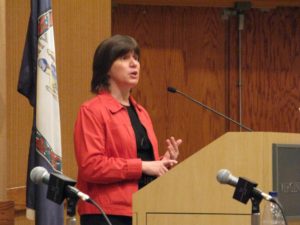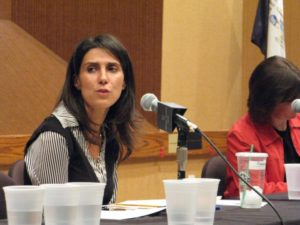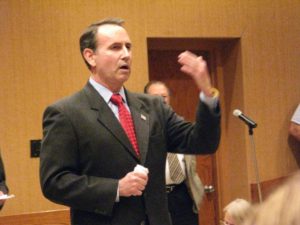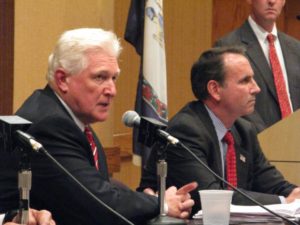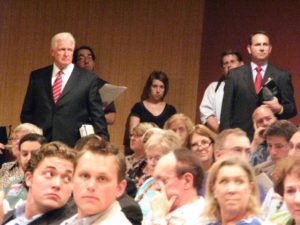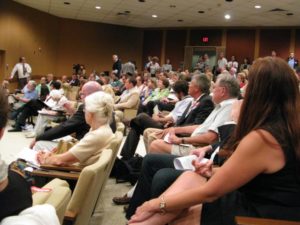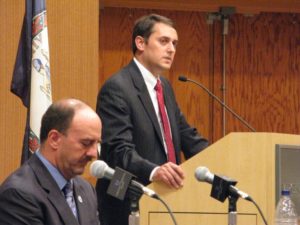 Republican County Board candidate Mark Kelly says county government spending is out of control and he’s the man to help reign it in. If elected to replace incumbent Democrat Chris Zimmerman, Kelly said he would bring “diversity of opinion” to the “out of touch” county board.
Republican County Board candidate Mark Kelly says county government spending is out of control and he’s the man to help reign it in. If elected to replace incumbent Democrat Chris Zimmerman, Kelly said he would bring “diversity of opinion” to the “out of touch” county board.
“Between 2000 and 2009, the all-Democrat county board increased spending at a rate nearly three times inflation,” Kelly said in this opening remarks at Tuesday night’s Civic Federation debate. “Mr. Zimmerman recently called that ‘cautious and careful fiscal management… only inside the Beltway would we call that cautious and careful fiscal management.'”
Kelly proposes to scrap the $150 million Columbia Pike trolley system, championed by Zimmerman. If elected, Kelly said he would push for the release of all county spending information online and support a 10 percent pay cut for board members to help pay for it.
Zimmerman, meanwhile, cited the rosy state of the county’s economy and standard of living as evidence that Arlington is on the right track. He rattled off a list of accolades recently received by the county: best place to weather the recession, best place to raise a child, top 10 intelligent cities in the world, and the highest fiscal rating by bond agencies.
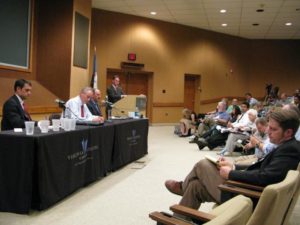 “I’m proud of what we achieved,” Zimmerman said.
“I’m proud of what we achieved,” Zimmerman said.
In particular, Zimmerman said he was proud of promoting smart growth, public transportation — including the creation of the ART bus system — and affordable housing.
“When you have prosperity, affordable housing becomes more of a problem,” Zimmerman said. “That’s what makes it the thing we have to work the most on.”
On the topic of zoning, Kelly called for more flexibility in the county’s dealing with local business. He said the recent controversy over dog murals in Shirlington and the three-and-a-half hour board discussion about signage and cafe seating is evidence the county is “micromanaging businesses.”
For his part, Zimmerman called for “new strategies to meet the needs of small business.”
“I continue to be dedicated to Arlington’s participatory tradition in planning and government,” he said.
(more…)




